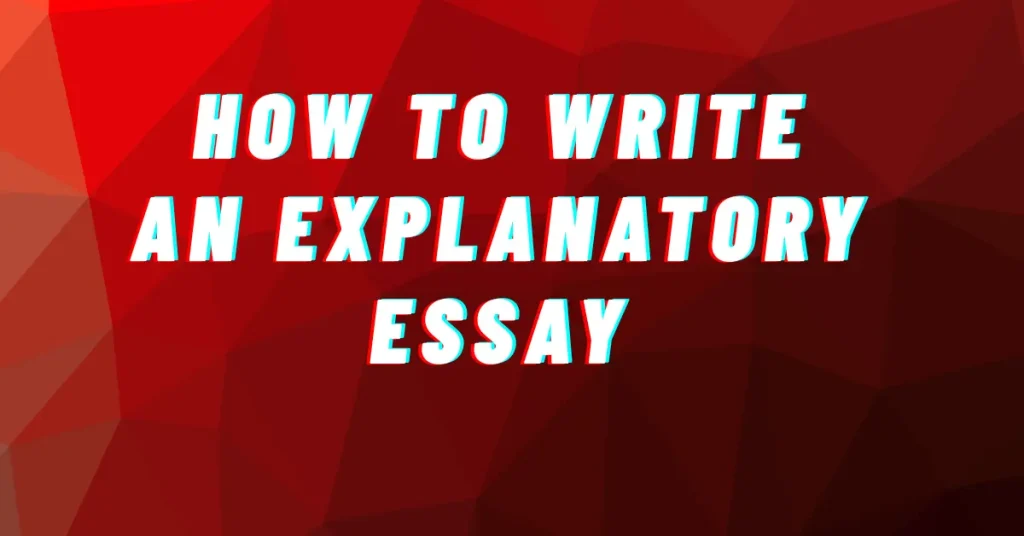Writing an explanatory essay is a common task in schools, colleges, and exams. But let me tell you, it doesn’t have to be difficult. I’m Henry Luke, a writing expert at AllAssignmentHelp.org, and today I’ll walk you through everything you need to know about explanatory essay writing.
-
What is an Explanatory Essay?
- Why Learn Explanatory Essay Writing?
- Explanatory Essay Structure Explained
- Understanding the Thesis Statement in Explanatory Essays
- Creating an Explanatory Essay Outline for Beginners
- Expository vs Explanatory Essay: Know the Difference
- Formal Writing Rules to Remember
- Importance of Evidence in Explanatory Essays
- Common Mistakes in Explanatory Essay Writing
- Tips for Writing Explanatory Essays Like a Pro
- Explanatory Essay Topics for Practice
- Why Structure and Format Matter
- Final Thoughts: Keep It Simple, Keep It Clear
- Frequently Asked Questions
What is an Explanatory Essay?
An explanatory essay, also known as an expository essay, aims to explain a topic in a simple, clear way. Unlike persuasive or argumentative writing, the goal here is not to take sides but to give information.
The focus is on facts, logic, and clarity. Whether you’re writing about a process, a historical event, or a scientific idea, your job is to break it down so the reader understands it easily.
Why Learn Explanatory Essay Writing?
Learning to write an explanatory essay helps you develop research, organisation, and communication skills. These are vital not just in academics but also in real life.
Explanatory essay writing improves your ability to:
- Present ideas in a structured way
- Write with a clear and coherent writing style
- Analyse information without bias
Explanatory Essay Structure Explained
The best way to succeed is to follow a simple structure. Here’s what a standard explanatory essay format looks like:
- Introduction
- Hook: Grab attention with a fact or question
- Background: Explain the topic briefly
- Thesis Statement: State the main idea clearly
- Body Paragraphs (Usually 3)
Each paragraph should:
- Begin with a topic sentence
- Include evidence or examples
- Link back to the thesis
- Conclusion
- Restate the thesis
- Summarise the main points
- End with a closing thought
The goal is a smooth flow from start to finish. This structure makes sure the essay introduction, body, and conclusion are all connected and easy to follow.
Understanding the Thesis Statement in Explanatory Essays
A thesis statement is the heart of your essay. It tells the reader what to expect.
Writing an Effective Thesis Statement:
- Keep it short and direct
- Avoid opinions or bias
- Stick to the topic
Example:
“Renewable energy reduces carbon emissions and supports sustainable living.”
This statement is clear, informative, and sets the tone for the essay.
Creating an Explanatory Essay Outline for Beginners
An outline is like a map for your essay. It saves time and keeps you focused.
Sample Outline:
- Intro: Topic background + thesis
- Body 1: First point + example
- Body 2: Second point + data
- Body 3: Third point + real-life case
- Conclusion: Restate + wrap-up
Use bullet points or notes while planning. This outline helps in essay organisation and prevents going off track.
Expository vs Explanatory Essay: Know the Difference
Many students confuse the two. Here’s the difference:
- Expository Essay: Broader, may include compare/contrast, how-to, or cause/effect.
- Explanatory Essay: Focused on explaining one idea in detail.
So, while all explanatory essays are expository, not all expository essays are explanatory.
Formal Writing Rules to Remember
Explanatory essays follow academic writing rules:
- Use the third-person point of view
- Avoid contractions (e.g., use “do not” instead of “don’t”)
- Stick to facts, not opinions
- Use formal vocabulary and grammar
These formal writing rules ensure that your essay looks professional.

Importance of Evidence in Explanatory Essays
Good essays rely on strong evidence. This shows you understand the topic.
Use the Following Types of Evidence:
- Research data
- Case studies
- Statistics
- Quotes from experts
Always link your evidence back to the main idea. It strengthens your argument without making it biased.
Common Mistakes in Explanatory Essay Writing
Avoid these errors to write better essays:
- Weak thesis statement
- Unclear structure
- Lack of transitions
- Repeating points
- Missing conclusion
Check your draft to make sure each part flows smoothly.
Tips for Writing Explanatory Essays Like a Pro
Writing gets easier with practice. Follow these tips:
- Plan Before Writing: Start with an outline
- Keep Sentences Short: 20 words or fewer
- Use Linking Words: However, because, also, for example
- Revise Your Work: Check grammar and spelling
- Stick to the Topic: Do not go off-point
Use this checklist before submitting your essay.
Explanatory Essay Topics for Practice
Here are a few easy topics to try:
- How photosynthesis works
- Causes of climate change
- Role of social media in education
- How vaccines protect us
- Importance of water conservation
Practising different topics helps you understand the explanatory essay format for exams.
Why Structure and Format Matter
Explanatory essay structure is more than just a formality. It helps the reader follow your ideas. A proper format ensures clarity and makes your writing easier to understand.
Stick to the classic structure: introduction, body, and conclusion. Add headings if needed, especially in exams.
Final Thoughts: Keep It Simple, Keep It Clear
Writing an explanatory essay is about sharing what you know in a clear, organised way. With practice, anyone can master it.
Use this guide as your reference. Keep your sentences short, your ideas clear, and your tone formal yet friendly. That’s the key to academic essay writing success.
And if you ever feel stuck, our team at AllAssignmentHelp.org is here to help you with your essay writing needs.
Read more: How to Write a Critical Essay
Frequently Asked Questions
What is the best way to write an explanatory essay?
Use a simple structure: start with an introduction, add three body paragraphs, and end with a conclusion. Begin with a hook and clear idea (thesis). Explain your points with facts. End by repeating your main idea.
How do I write a good thesis statement?
A good thesis statement tells the reader what your essay is about. It should be short, clear, and not include any opinion. Just explain the topic in one sentence.
What are common mistakes in explanatory essays?
Many students make mistakes like writing a weak main idea, using a messy format, or forgetting to add proof. To fix this, use a clear structure, stay on topic, and check your work before you submit it.









